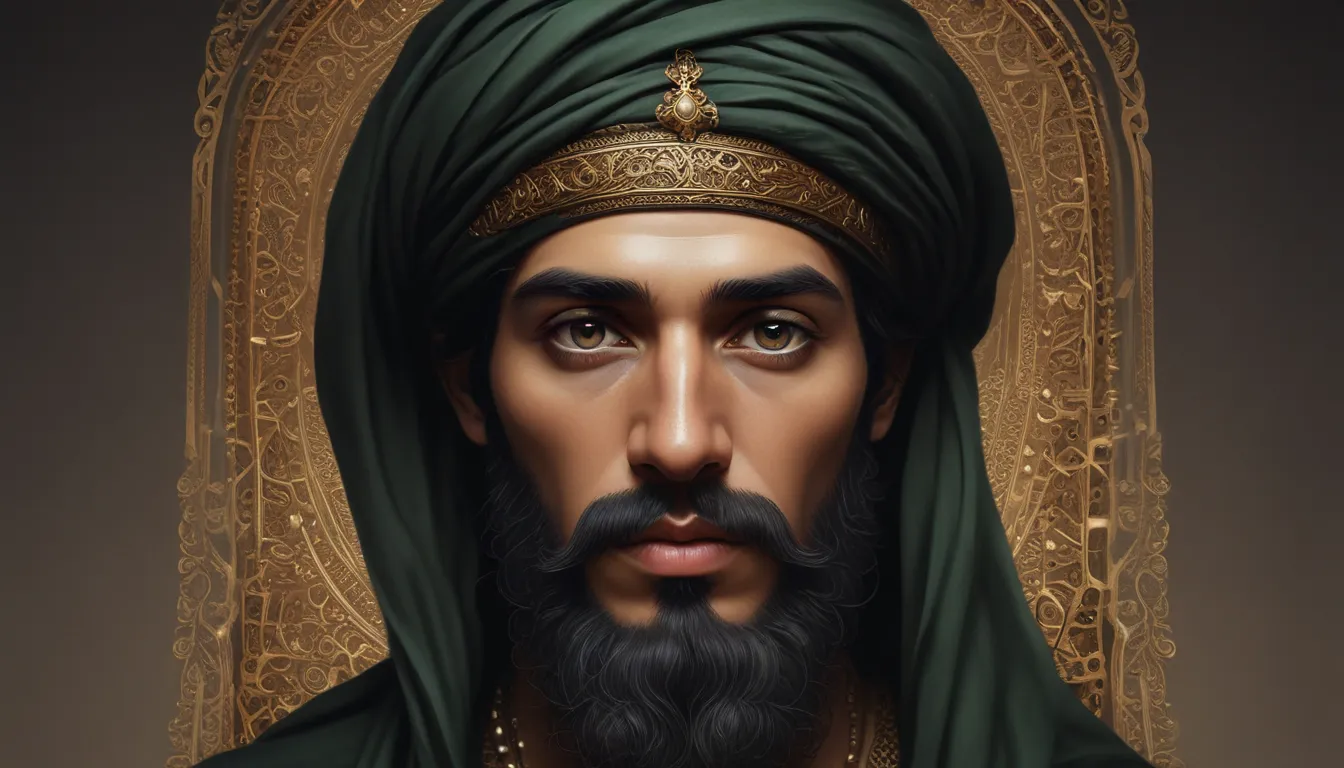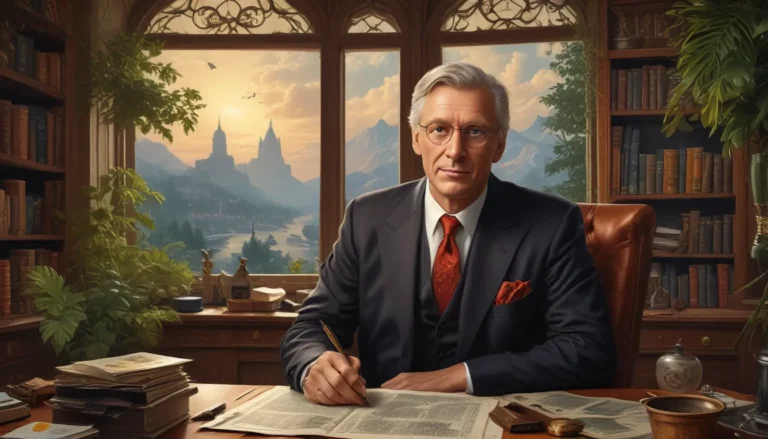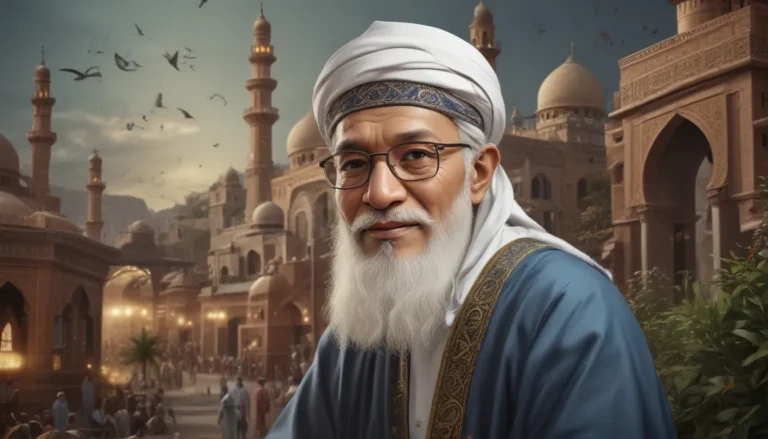The images in our articles may not match the content exactly. They are used to grab your attention, not to show the exact details in the text. The images complement the text but do not replace it.
Hussain Muhammad Ershad was a towering figure in Bangladeshi politics, leaving an indelible mark on the country’s history during his presidency from 1983 to 1990. Known for his enigmatic and charismatic personality, Ershad’s leadership was marked by controversial decisions and lasting impacts on the political landscape.
The Rise to Power
In 1982, Ershad seized power in a military coup, overthrowing President Abdus Sattar and beginning his controversial rule. This marked the start of a tumultuous period in Bangladeshi politics.
Extended Rule
Ershad’s presidency spanned nearly a decade, making him the longest-serving President in Bangladesh’s history. His grip on power was strong, but it came with its own set of challenges and controversies.
Imposition of Martial Law
During his regime, Ershad declared martial law and suspended the constitution, consolidating his authority and tightening his control over the country. This move raised concerns about the erosion of democratic principles.
Economic Reforms and Controversial Election
Ershad implemented economic reforms aimed at modernizing Bangladesh’s economy, including privatization initiatives and infrastructure projects. However, his controversial conduct during the 1986 presidential election, marred by allegations of fraud and violence, drew widespread criticism.
Political Suppression and Anti-Corruption Drive
Ershad’s regime was characterized by a heavy-handed approach to political dissent, with opposition parties and activists facing censorship and persecution. To clean up corruption within the government, he launched an anti-corruption drive targeting officials and politicians engaged in malpractices.
Social Welfare Initiatives and Power Struggles
Despite the political turmoil, Ershad initiated social welfare programs focusing on education, healthcare, and poverty alleviation to uplift the living standards of the people. However, internal power struggles within his party, the Jatiya Party, posed challenges to his leadership.
Military Background and Repeal of Powers
Ershad’s military background, rising to the rank of Chief of Army Staff, informed his leadership style and approach to governance. In 1991, following mass protests and political pressure, the parliament stripped Ershad of his controversial presidential powers.
Legal Troubles and Comeback Attempts
Ershad faced legal battles and charges of corruption and human rights abuses after being ousted from power. Despite multiple attempts to regain power through elections, his popularity had waned, reflecting the complexities of his political career.
Founding a Political Party and Legacy
Post-ouster, Ershad founded the Jatiya Party, continuing to exert influence in Bangladesh’s political landscape albeit with diminished power. His legacy remains a subject of debate and controversy, with contrasting views on his contributions and rule.
Personal Life and Influence in the Army
Born on February 1, 1930, in Dinhata, British India, Ershad was married to Rawshan Ershad and had five children. His military background allowed him to cultivate deep connections and influence within the armed forces, playing a crucial role in his rise to power.
A Mix of Controversy and Achievements
Ershad’s presidency was a blend of controversy, political repression, and notable achievements, leaving behind a complex legacy that continues to shape political narratives.
Social Reforms and Death
Ershad introduced social reforms empowering women and marginalized sections of society, including quotas for women in government and educational institutions. Following his death on July 14, 2019, in Dhaka, his funeral was attended by a large number of supporters and political figures.
Conclusion: A Complex Legacy
Hussain Muhammad Ershad’s enigmatic persona and tenure as President of Bangladesh exemplify the complexities of leadership and governance. His authoritarian rule, mixed with policy initiatives and controversies, has left a significant impact on the country’s history.
While opinions on Ershad vary, his influence on Bangladesh’s political landscape is undeniable, serving as a reminder of the challenges and nuances that come with holding power. As his legacy continues to shape political discourse, the enigmatic figure of Hussain Muhammad Ershad remains a pivotal character in the narrative of Bangladeshi politics.
FAQs
-
How long was Hossain Mohammad Ershad in power?
Hossain Mohammad Ershad served as the President of Bangladesh for nearly nine years, from 1982 to 1990. -
What were some of the controversial decisions made by Ershad during his presidency?
Ershad’s presidency was marked by several controversial decisions, including the banning of political parties, restrictions on civil liberties, and the implementation of martial law. -
What is Ershad’s lasting legacy in Bangladesh?
Ershad’s legacy is a subject of debate. Some argue that he modernized the country and improved infrastructure, while others criticize his authoritarian rule and alleged human rights violations. -
How did Ershad’s rule impact Bangladesh’s political landscape?
Ershad’s rule had a profound impact on Bangladesh’s political landscape. It sparked both support and opposition, leading to a polarized society and shaping subsequent democratic movements in the country. -
What is the significance of Hossain Mohammad Ershad in Bangladeshi history?
Ershad’s significance lies in his role as the president and his influence on the country’s political trajectory. His tenure marked a crucial phase in Bangladesh’s history and continues to shape political narratives and discourse to this day.
By exploring the enigmatic journey of Hussain Muhammad Ershad, we gain a deeper understanding of the complexities of leadership, governance, and the enduring impact of influential figures on a nation’s history. Love him or loathe him, Ershad’s legacy remains an integral part of Bangladesh’s political narrative.






